Latest News
Red Cross urges donors to put lives of Afghans above politics
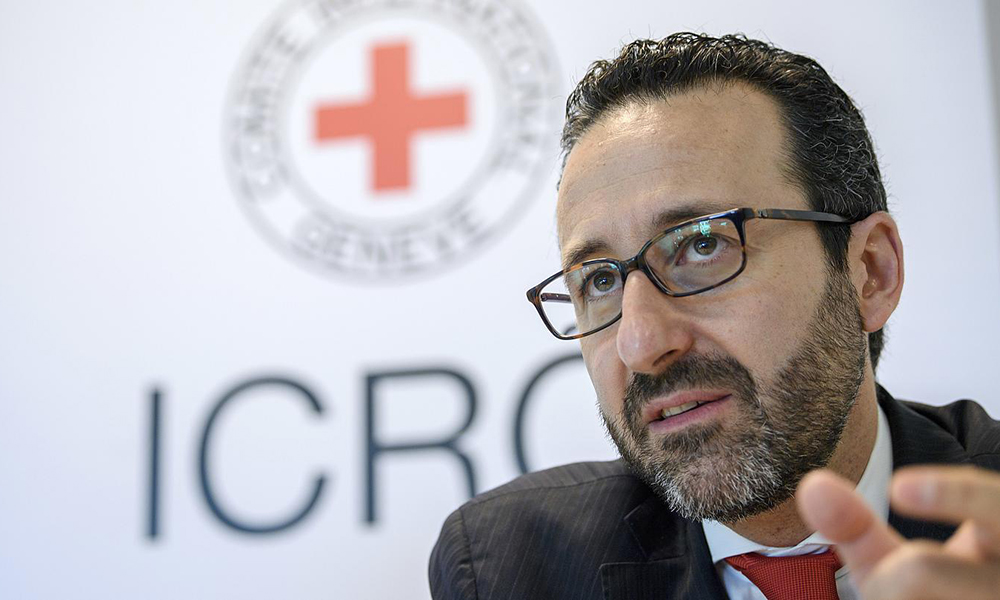
The international community must step up urgently to stop Afghanistan’s rapid slide towards total collapse and all-out humanitarian disaster, the International Committee of the Red Cross (ICRC) has warned.
Six months after the Islamic Emirate of Afghanistan (IEA) took control, resulting in international sanctions and the freezing of aid, the continuing reluctance of many international donors to engage with the current leadership is worsening the desperate plight of millions of Afghans already worn down by more than four decades of conflict, repeated droughts and the COVID-19 pandemic, ICRC said in a statement released Thursday.
“In my 25 years as a humanitarian worker, I have never seen anything quite like this. The magnitude of the crisis facing the people of Afghanistan – and the speed with which it has worsened – is really alarming,” said Robert Mardini, director-general of the ICRC, during a visit to the country.
“Afghan lives must not be hostage to political manoeuvres. It is vital that donors distinguish between the type of development aid that might be used as political incentive and aid that will help ordinary Afghans to survive – by ensuring that government institutions can deliver basic services and prevent economic collapse. There is no time to lose.”
ICRC said that health services are among those in most urgent need of support. It cited an ICRC-supported hospital in Kandahar as an example of how it was overcrowded.
“Access to healthcare is clearly one the most pressing humanitarian concerns in the country,” said Anders Ladekarl, secretary-general of the Danish Red Cross society. “Supporting teaching hospitals and nursing schools is one of the most effective and sustainable ways to save an already-debilitated health system from collapse and help secure its future. The urgency of putting the right support in place cannot be overestimated.”
Kristiina Kumpula, secretary-general of the Finnish Red Cross society, said the levels of suffering in Afghanistan is “very distressing.”
“Afghanistan was already one of the most difficult places in the world to be a mother or an infant. Now it is harder than ever.”
Mardini said that humanitarian response cannot replace a functioning public sector and ensure service delivery for 40 million people.
“The most urgent next steps are salary payments for some 500,000 public sector civil servants, ensuring that critical services are able to function, and resuming technical support to the Central Bank to relieve the banking and liquidity crisis,” he said.
ICRC will launch an appeal of around $54 million in March, mostly to provide assistance to the country’s hospitals and medical staff.
“What is needed now is decisive action by donors to put the lives and livelihoods of Afghan people above politics,” Mardini, said. “The cost of inaction will be very much greater, and the ensuing disaster difficult, if not impossible, to reverse.”
Earlier this week, ICRC said that the Afghan people’s need for humanitarian assistance has increased by 30 percent.
The committee said 24.4 million people across Afghanistan were in need of humanitarian assistance.
Meanwhile, UNICEF said on Thursday around 3.2 million Afghan children under five are expected to suffer from acute malnutrition this year.
Latest News
Turkish intelligence captures a Daesh member near the Durand Line
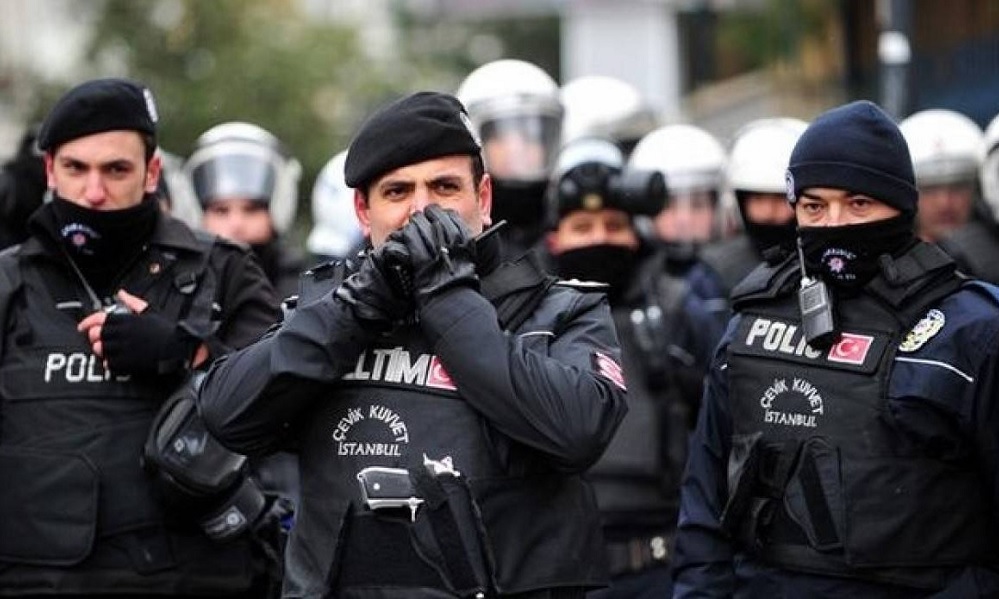
Turkish intelligence agents have captured a senior member of Daesh near the Durand Line, reportedly preventing planned suicide attacks in Turkey and other countries, according to Turkey’s state-run Anadolu Agency on Monday.
The suspect, identified as Mehmet Goren, is a Turkish citizen. He was apprehended during a covert operation and transferred to Turkey. Details on the timing of the operation or the involvement of Afghan and Pakistani authorities were not disclosed.
According to the report, Goren had risen through the ranks of Daesh and was allegedly tasked with carrying out suicide bombings in Turkey, Pakistan, Afghanistan, and Europe.
Daesh has a history of deadly attacks in Turkey, including the January 1, 2017 shooting at an Istanbul nightclub that killed 39 people.
Anadolu Agency reported that Goren’s arrest also provided intelligence on the group’s recruitment strategies and planned activities.
Latest News
Dozens of needy families in Kabul receive winter aid from Bayat Foundation
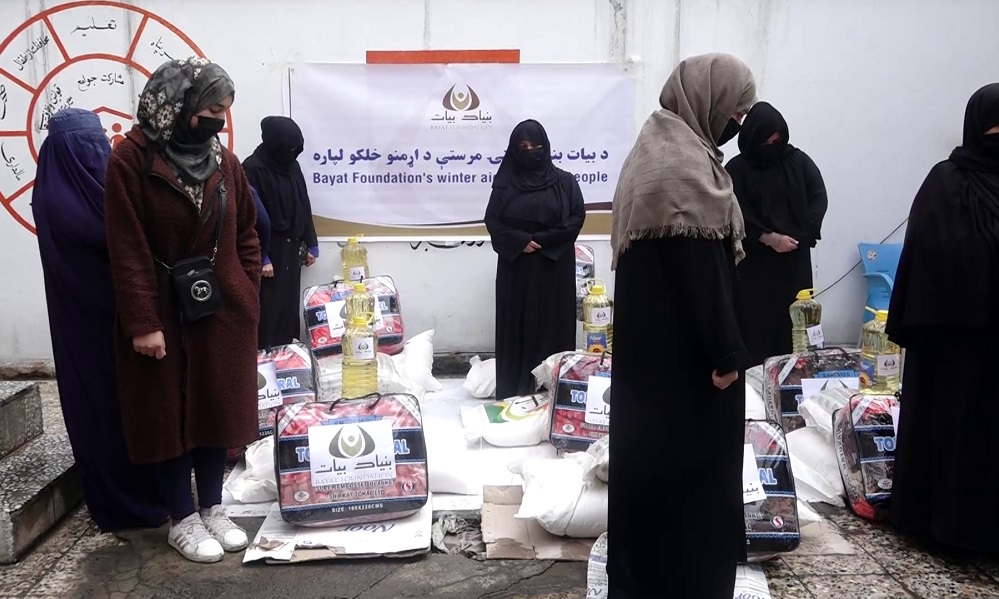
Dozens of needy families in Kabul’s fifth district have received essential winter assistance from the Bayat Foundation, as part of ongoing efforts to ease hardship during the cold season and worsening economic conditions.
According to foundation officials, the aid package includes staple food items such as flour, rice, and cooking oil, along with warm blankets to help families cope with freezing temperatures. Haji Mohammad Ismail, Deputy Head of Bayat Foundation, said the distribution began in Kabul and will soon be expanded to other provinces.
“Our assistance includes flour, rice, cooking oil, and blankets,” Ismail said. “Today, we started distributing these items in Kabul’s fifth district, and God willing, the aid will reach other provinces in the near future.”
Afghanistan continues to face widespread poverty, unemployment, and food insecurity, with many families struggling to meet basic needs, particularly during winter when access to work and heating becomes more difficult.Humanitarian organizations and charitable foundations have stepped up relief efforts to support those most affected.
Beneficiaries welcomed the assistance, describing it as a lifeline. “May God bless you for helping the poor. We had nothing and no work,” said one recipient. Another added, “Thank you for your help. Our flour was almost finished.”
Bayat Foundation officials stressed that winter aid distributions will continue in Kabul and other provinces in the coming days, as part of their broader commitment to supporting needy families across the country.
Latest News
Nearly seven million Afghan refugees return home since Islamic Emirate’s takeover
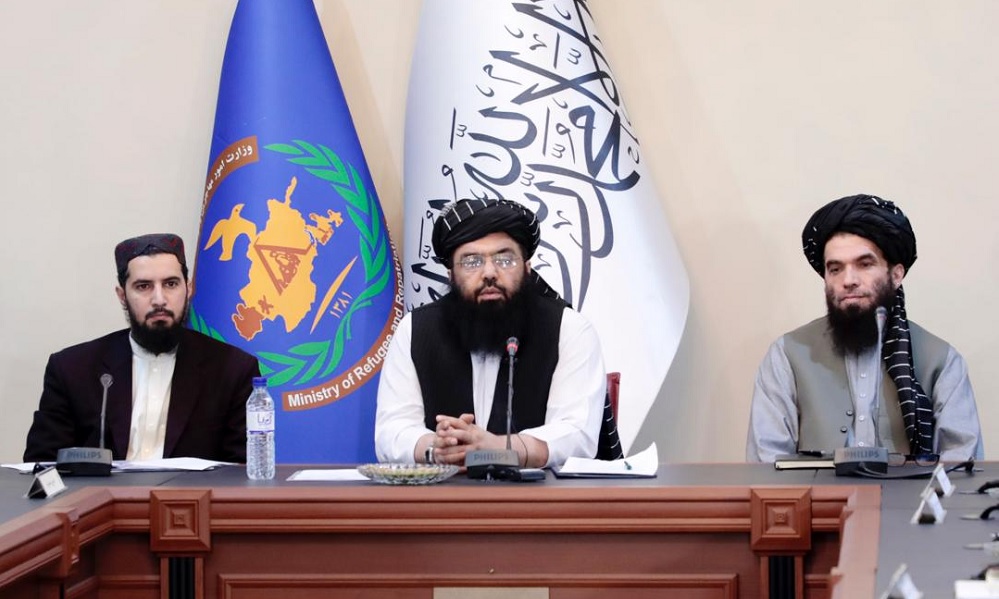
Since the Islamic Emirate came to power, approximately 6.8 million Afghans have returned home, either voluntarily or forcibly, from neighboring countries and other nations, according to the Minister of Refugees and Repatriation.
Mawlawi Abdul Kabir, speaking at a meeting on finalizing a draft plan for a permanent migration solution in Afghanistan, added that 1.3 million Afghans have been internally displaced due to natural disasters during the same period.
With winter approaching, widespread poverty and severe cold are threatening thousands of lives. Meanwhile, the forced expulsion of Afghan migrants from neighboring countries, particularly Iran and Pakistan, continues.
The Islamic Emirate has repeatedly urged neighboring states to allow migrants to return voluntarily. According to UNHCR, over two million Afghans have returned from Iran and Pakistan since the start of 2025.
-

 Latest News4 days ago
Latest News4 days agoAfghan border forces prevent illegal entry of hundreds into Iran
-

 Latest News3 days ago
Latest News3 days agoPakistan summons Afghan diplomat over deadly attack in North Waziristan
-

 Latest News2 days ago
Latest News2 days agoAfghanistan signs 30-year deal for marble mining in Daikundi
-

 Latest News2 days ago
Latest News2 days agoAfghan health minister calls for medical cooperation between Kabul and New Delhi
-

 Latest News3 days ago
Latest News3 days agoJapan allocates nearly $20 million in humanitarian aid for Afghanistan
-

 Latest News3 days ago
Latest News3 days agoKarzai urges reopening of girls’ schools and universities for Afghanistan’s bright future
-

 Health5 days ago
Health5 days agoAfghanistan seeks India’s support in standardizing traditional medicine
-
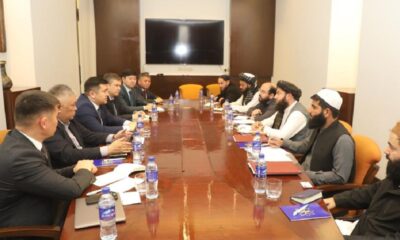
 Business5 days ago
Business5 days agoAfghanistan-Kazakhstan banking ties discussed in Kabul meeting
























